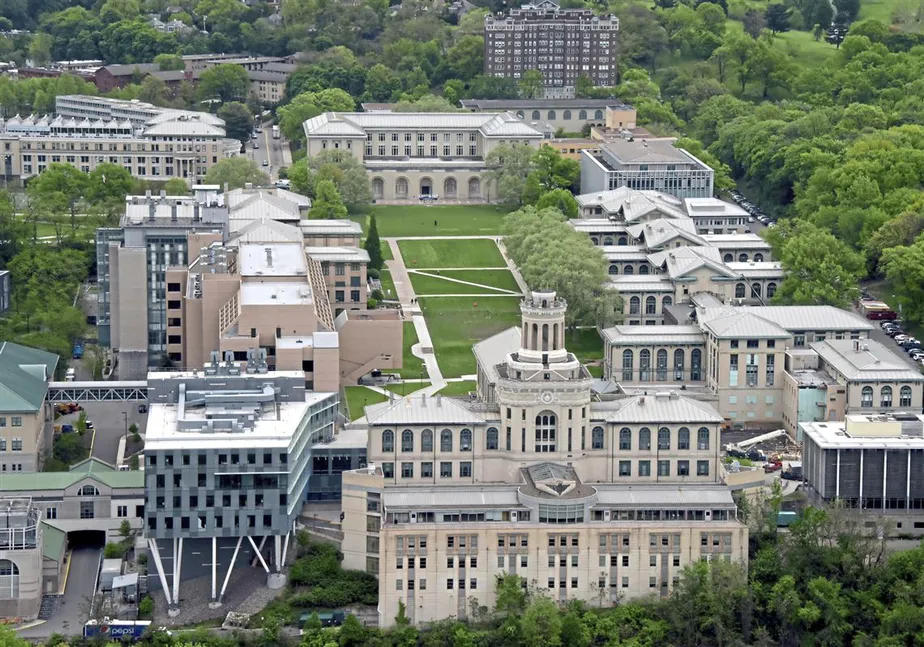Oguz Kaan Kısa · Aug. 10, 2021

Carnegie Mellon University, a prominent research university, was founded in 1900 by steel magnate and philanthropist Andrew Carnegie. For STEM areas, the institution is rated 13th among other national research universities (62 percent of Carnegie Mellon graduates are in STEM fields). The college of fine arts and the Dietrich Faculty of Humanities and Social Sciences are two examples of the school's commitment to the arts and social sciences. CMU has 90 programs throughout six undergraduate schools and intercollegiate programs, with engineering, computer science, and mathematics among the most popular. CMU's School of Computer Science, which was founded in 1965, has long been regarded as a leader in the disciplines of computer science and robotics. This is one of the nation's original computer science divisions. The institution established the "Presidential Scholarship" in 2014, which has granted over $285 million in scholarships to academically talented students. James Gosling, the developer of Java, billionaires Vinod Khosla and David Tepper, Andy Warhol, the creator of the first Wi-Fi network, 20 Nobel Prize winners, 12 Turing Award winners, 9 Academy Award winners, and 44 Tony Award winners are among the notable alumni.
Carnegie Mellon University is an incredible center ground for understudies searching for lovely, green grounds with conventional quads and open air gathering regions nearby a metropolitan community. The grounds are huge and solitary, considering its situation in the Oakland neighborhood of the city of Pittsburgh. The main 140-acre campus of Carnegie Mellon University is located 5 miles outside downtown Pittsburgh, between Schenley Park and the communities of Squirrel Hill, Shadyside, and Oakland. This university has around 90 buildings on its grounds.
The application process and deadlines for overseas students are largely the same as for those applying to institutions in the United States. However, overseas students are not eligible for financial help at Carnegie Mellon. If you are an international student considering attending Carnegie Mellon, keep in mind that you and your family will be responsible for the whole cost of attendance.
- For International Students, the application deadline is the same as for Early Decision, Regular Decision, and Transfer applications.
- It's critical that the name on your application, letters of recommendation, and test results match the name on your passport. This removes any doubt about how your application will be handled.
- If your first language is not English, you must take the Test of English as a Foreign Language (TOEFL) or the International English Language Testing System (IELTS). Carnegie Mellon needs an internet-based TOEFL score of 102 or higher (as of Fall 2010) or IELTS scores of 7.5 or higher. Carnegie Mellon carefully examines the subscores for each of these examinations and evaluates these applicants as having 25 or more TOEFL subscores and 7.5 or more IELTS subscores on reading, writing, and speaking.
- InitialView interviews are suggested, however not needed, for non-local speakers. These meetings are regularly intended to gauge your status to partake in the class, while likewise noticing an understudy's character, different preferences.
- On the off chance that your secondary school record or other affirmation archive is written in a language other than English, it should be joined by an authoritative interpretation and checked as obvious duplicates by an instructor or school official.
- In case you are planning for the International Baccalaureate or General Certificate of Education (GCE) A-level tests, you should likewise present your normal test results.
Undergraduate tuition fees are around $55,000 annually. Fees vary for postgraduate education. On average, however, prices range from $23,000 to $55,000.
- John L.Hall (BS 1956, MS 1958, Ph.D. 1961), 2005 Nobel Prize in Physics
- Lars Peter Hansen (lecturer, 1978–1981), 2013 Bank of Sweden Prize in Economic Sciences
- Finn E. Kydland (PhD 1973, lecturer), 2004 Bank of Sweden Prize in Economic Sciences
- Robert Lucas, Jr. (lecturer, 1963–1974), 1995 Bank of Sweden Prize in Economic Sciences
- Merton H. Miller (lecturer, 1953–1961), 1990 Bank of Sweden Prize in Economic Sciences
- Franco Modigliani (lecturer, 1952–1962), 1985 Bank of Sweden Prize in Economic Sciences
- Dale Thomas Mortensen (Ph.D. 1967), 2010 Bank of Sweden Prize in Economic Sciences
- John Forbes Nash (BS 1948, MS 1948), 1994 Bank of Sweden Economic Sciences Award, subject A Beautiful Mind
- Edward C. Prescott (Ph.D. 1967, lecturer 1971–1980), 2004 Bank of Sweden Prize in Economic Sciences
- Clifford Shull (BS 1937), 1994 Nobel Prize in Physics

 Back
BackLet us find your dream university.
